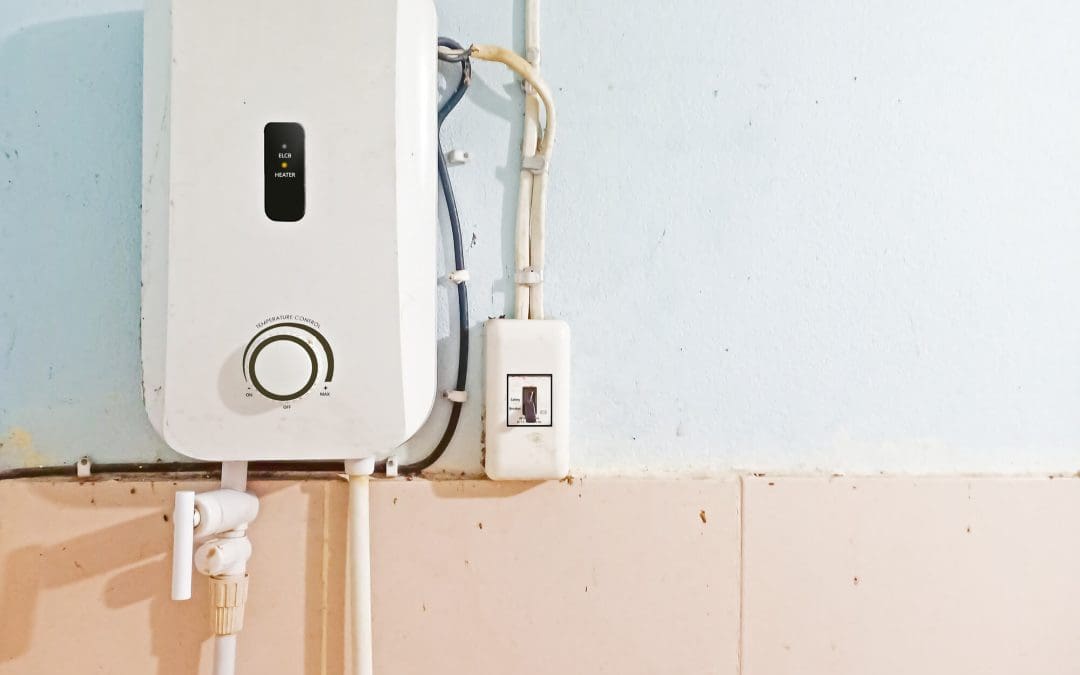A water heater is one of those appliances most people don’t think about until it stops doing its job. It quietly works behind the scenes, giving you hot water for showers, dishes, and laundry. But when something goes wrong, it brings your chores to a screeching halt. The good news is that many common water heater problems are easy to identify and, in some cases, fix without too much trouble. Let’s take a look at the most common water heater problems and what steps you can take to get things back on track.
Common Water Heater Problems: No Hot Water
If your tap water isn’t hot, it’s usually a clear sign your water heater isn’t working. For electric models, the problem is often a tripped circuit breaker or a bad heating element. Check your electrical panel first to make sure the breaker hasn’t flipped. If that’s not the issue, the thermostat or heating element inside the tank may need replacing.
If you have a gas unit, make sure the pilot light is on. A blown-out pilot light is a common cause of no hot water. If it’s out, follow the manufacturer’s instructions to relight it. If it won’t stay lit, you could have a faulty thermocouple that needs replacing.
Not Enough Hot Water
When your water heater runs out of hot water too quickly, it could be undersized for your household needs. However, if this is a new problem, it might be a broken dip tube. That’s the part inside the tank that pushes cold water to the bottom so hot water can rise to the top. If it breaks, cold water mixes with hot water at the top of the tank and runs lukewarm at best.
Sediment buildup is another possible culprit. Over time, minerals in the water settle at the bottom of the tank, reducing the amount of hot water available. Flushing the tank once or twice a year helps prevent this.
Water is Too Hot
If your water feels dangerously hot, your thermostat may be set too high. Most manufacturers recommend a setting of 120 degrees Fahrenheit. Anything higher can scald skin and increase energy costs. If adjusting the thermostat doesn’t help, it could be faulty and need replacing.
Strange Noises are Signs of Water Heater Problems
Popping, banging, or rumbling sounds from your water heater are usually caused by sediment buildup. As minerals settle at the bottom of the tank, they harden and cause noise as the burner heats the water underneath. Flushing the tank can often solve the problem. However, if the noise continues, it may be time to consider a replacement, especially if the tank is older.
Water Leaks
A leaking water heater should be addressed quickly to avoid damage to floors and nearby structures. The source of the leak could be a loose valve, a bad gasket, or in more serious cases, a crack in the tank itself. If it’s a minor issue like a loose drain valve or a worn-out pressure relief valve, those can be tightened or replaced. But if the tank itself is leaking, you’re looking at a full replacement. Water heaters don’t last forever, and a leaking tank usually means it’s reached the end of the road.
Discolored or Smelly Water
Rusty or brown water coming from the hot tap can mean the inside of your tank is starting to corrode. This could be due to a failing anode rod, which is a part designed to attract corrosive elements and protect the tank. Replacing the anode rod can extend the life of your heater. If the water smells like rotten eggs, bacteria may be reacting with the anode rod. Flushing the tank and replacing the rod with one made of a different material can help fix the issue.
Low Water Pressure
Low hot water pressure might not be your water heater’s fault directly. It’s often caused by sediment or corrosion in the pipes connected to the heater, especially in older homes with galvanized plumbing. If you’re also seeing signs of discoloration or buildup in faucets, it may be time to get the plumbing inspected.
FAQs on Water Heater Problems
How long should a water heater last?
Most water heaters last 8 to 12 years. With regular maintenance like flushing the tank and checking the anode rod, you might get even more life out of it.
Is it safe to flush my water heater myself?
Yes, it’s safe if you follow the correct steps. Turn off power or gas to the unit, let it cool, attach a garden hose to the drain valve, and run the water into a safe area. If you’re unsure, a plumber can handle it for you.
What size water heater do I need?
That depends on your household size and water usage. A 40-gallon tank is often enough for a couple, while families may need 50 gallons or more. If you regularly run out of hot water, you might need to go bigger or consider a tankless system.
Why does my water heater make a knocking sound?
That knocking or popping sound is usually sediment heating up at the bottom of the tank. It’s a sign that the tank needs to be flushed to remove mineral buildup.
Should I repair or replace my water heater?
If it’s more than 10 years old and giving you trouble, replacement often makes more sense. For newer units with minor issues, repairs are usually worth it. Keep an eye on your energy bills too—an inefficient heater can cost you more in the long run.
Crossroads Home Inspections offers home inspections in St. Louis and the surrounding area. Contact us to request an appointment.

